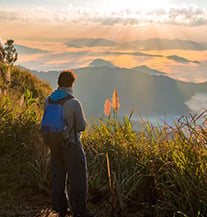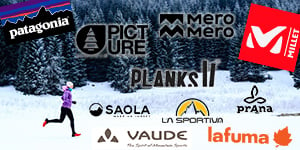Sign in
Contact
-
MenuBack
-
Our Sports
-
-
-
-
Hiking equipment
- Headlamp
- Hiking accessories
- Hiking compass
- Hiking poles
- Pole accessories
- Sunglasses
- Trekking binoculars
-
Hiking equipment
-
-
Hiking bag
- Baby carrier accessories
- Baby carrier bag
- Children's backpacks
- Hiking backpack
- Isothermal bag
- Rain cover
- Waterproof bags
-
Hiking bag
-
-
-
-
Hiking shoes
- Flip-flops
- Hiking boots
- Hiking sandals
- Hiking shoe accessories
- Insoles for hiking boots
- Low hiking shoes
-
Hiking shoes
-
-
Hiking shoe accessories
- Cleaning products
- Laces
- Waterproofing
-
Hiking shoe accessories
-
-
-
- Hiking clothes
-
- Hiking caps
- Hiking hats
- Hiking socks
- Men's hiking jackets
- Men's hiking pants
- Men's hiking T-shirts
- Men's Softshell Jacket
- Women's hiking jackets
- Women's hiking pants
- Women's hiking T-shirts
- Women's Softshell Jacket
-
- Men's hiking shorts
- Women's hiking shorts
-
-
-
-
-
-
Mountaineering equipment
- Ice screws
- Mountaineering accessories
- Mountaineering backpack
- Mountaineering crampons
- Mountaineering harness
- Mountaineering ice axe
- Mountaineering rope
-
Mountaineering equipment
-
-
-
-
Mountaineering shoes
- Approach Shoes
- Mountain boots
- Mountaineering boots
-
Mountaineering shoes
-
-
-
- Mountaineering Clothing
-
- Climbing gloves
- Men's fleeces
- Men's ski pants
- Men's Softshell Jacket
- Women's fleeces
- Women's ski pants
- Women's Softshell Jacket
-
- Men's mountaineering jacket
- Women's mountaineering jacket
-
-
-
-
-
-
Climbing belay
- Climbing anchors
- Climbing belay goggles
- Climbing carabiner
- Climbing pulleys
- Climbing quickdraws
- Climbing ropes
- Climbing straps
- Climbing wedges
- Rope bags
-
Climbing belay
-
- Via Ferrata equipment
-
- Slackline
-
-
-
-
Climbing shoes
- Lace-up climbing slipper
- Velcro climbing shoes
-
Climbing shoes
-
-
Climbing equipment
- Climbing accessories
- Climbing backpack
- Climbing bivouac
- Climbing harness
- Climbing helmets
- Crash Pad
- Magnesia bag
- Magnesia for climbing
-
Climbing equipment
-
- Fitness
-
-
-
- Climbing clothes
-
- Climbing gloves
- Men's climbing pants
- Men's climbing T-shirts
- Men's Softshell Jacket
- Women's climbing pants
- Women's climbing T-shirts
- Women's Softshell Jacket
-
- Men's climbing shorts
- Women's climbing shorts
-
-
-
-
-
-
Tents
- 1-person tent
- 2-person tent
- 3-person tent
- Family Tent Camping
- Floor mats
- Mosquito net
- Shipping tent
- Trekking tent
- Ultra-light tent
-
Tents
-
-
-
-
Camping equipment
- Camping accessories
- Camping chairs
- Camping lamp
- Camping table
- Camping towels
- Solar shower
-
Camping equipment
-
-
Survival accessories
- Compass
- First aid kit
- Survival blankets
- Survival kit
- Water purifier
-
Survival accessories
-
-
-
-
Camping kitchen
- Camping cooler
- Camping dishes
- Camping stove
- Cutlery
- Gas cartridges
- Gourds
- Kettle
- Nutrition
- Popote camping
- Stove accessories
-
Camping kitchen
-
-
-
-
Camping bedding
- Camping hammock
- Camping mattresses
- Camping pillows
- Camping sheets
- Compression bag
- Sleeping bag
-
Camping bedding
-
-
-
-
-
-
Survival gear
- Bushcraft tools
- Machetes
- Solar chargers
- Survival knives
-
Survival gear
-
-
-
-
Survival accessories
- Compass
- First aid kit
- Survival blankets
- Survival kit
- Water purifier
-
Survival accessories
-
-
-
- Nutrition
-
-
-
-
-
-
Trail equipment
- Hydration accessories
- Hydration vest
- Hygiene
- Pharmacy
- Soft Flask
- Trail bag
- Trail belts
- Trail headlamp
- Trail stick
- Water Pouch
-
Trail equipment
-
-
-
- Trail shoe
-
- Sandal recovery
- Shoe sole
- Trail crampons
- Trail shoes
-
-
-
- Trail clothing
-
- Men's tank tops
- Men's trail jackets
- Men's trail shorts
- Men's trail T-shirts
- Men's trail tights
- Men's windproof jackets
- Trail caps
- Trail socks
- Women's shorts
- Women's tank tops
- Women's trail jackets
- Women's trail T-shirts
- Women's trail tights
- Women's windproof jackets
-
-
-
-
-
-
Running gear
- Energy drinks
- Energy supply
- Nordic walking poles
- Running hydration vest
-
Running gear
-
-
-
-
Running shoe
- Running shoes
- Sandal recovery
- Shoe sole
-
Running shoe
-
-
-
- Running clothes
-
- Women's technical bra
- Running socks
- Men's tank tops
- Trail caps
- Men's trail jackets
- Women's trail jackets
- Men's trail shorts
- Men's trail T-shirts
- Women's trail T-shirts
- Men's windproof jackets
- Women's windproof jackets
- Women's shorts
-
-
-
-
-
-
Road bike equipment
- Bike Bag
- Bike goggles
- Bike helmet
- Bike shin guards
- Bike sleeve
-
Road bike equipment
-
-
Road bike accessories
- Baby seat carrier
- Bicycle bag
- Bike rack
- Bike tools
- Bike trailer
- Cans
-
Road bike accessories
-
-
-
-
Bicycle shoes
- Boa cycling shoe
- Classic cycling shoe
- On shoes
-
Bicycle shoes
-
-
-
- Bike clothing
-
- Men's cycling shorts
- Women's cycling shorts
- Men's cycling jacket
- Women's cycling jacket
- Men's cycling shorts
- Women's cycling shorts
- Women's short-sleeve cycling jersey
- Men's short-sleeve cycling jersey
-
- Bike cap
- Bike gloves
- Bike socks
-
-
-
-
-
-
Mountain bike equipment
- ATV protection
- Mountain bike goggles
- Mountain bike helmet
- MTB Mask
-
Mountain bike equipment
-
- Mountain bike accessories
-
-
-
-
MTB shoes
- Boa MTB shoe
- Classic MTB shoes
-
MTB shoes
-
- Bike rack
-
-
-
- Mountain bike clothing
-
- Bike cap
- Bike gloves
- Bike socks
- Men's cycling jacket
- Men's cycling shorts
- Men's cycling shorts
- Women's cycling jacket
- Women's cycling shorts
- Women's cycling shorts
-
- Women's long-sleeve cycling jersey
- Men's long-sleeve cycling jersey
-
-
-
-
-
-
Canyoning equipment
- Canyoning bag
- Canyoning harness
- canyoning helmet
-
Canyoning equipment
-
-
-
- Canyoning shoes
-
-
-
- Canyoning accessories
-
- Waterproof bags
-
-
-
-
-
-
Ski equipment
- Ski poles
- Ski boots
- Ski bindings
- Ski binding pack
- Downhill skiing
-
Ski equipment
-
-
Ski equipment
- Ski goggles
- Ski mask
- Ski helmet
- Ski helmet with visor
- Back protectors
- Wrist guards
- Ski backpack
- Other protections
-
Ski equipment
-
-
-
-
Avalanche safety equipment
- Airbag
- Airbag cartridges
- Avalanche probes
- Avalanche shovel
- DVA
- DVA overhaul
- DVA packs
- Inclinometers
- Safety accessories
-
Avalanche safety equipment
-
-
Ski accessories
- Mask shields
- Ski bags
- Ski boot bags
- Ski boot soles
- Ski equipment maintenance
-
Ski accessories
-
-
-
- Ski clothing
-
- Women's alpine ski pants
- Women's Alpine ski jackets
- Men's Alpine ski jackets
- Men's alpine ski pants
- Men's ski jacket
- Women's ski jacket
- Children's ski jacket
- Ski socks
- Children's ski suit
-
- Children's fleece
- Children's ski pants
- Heated ski gloves
- Men's fleeces
- Men's Softshell Jacket
- Mittens
- Ski cap
- Ski gloves
- Ski headband
- Under gloves
- Women's fleeces
- Women's Softshell Jacket
-
-
-
-
-
-
Ski touring equipment
- Ski touring
- Ski touring boots
- Ski touring knives
- Ski touring packs with bindings
- Ski touring packs with bindings and skins
- Ski touring packs with skins
- Ski touring poles
- Ski touring skins
- Touring ski bindings
-
Ski touring equipment
-
-
Telemark equipment
- Telemark binding
- Telemark Shoes
- Telemark skiing
-
Telemark equipment
-
-
-
Ski accessories
- Mask shields
- Ski bags
- Ski boot bags
- Ski boot soles
- Ski equipment maintenance
-
Ski accessories
-
-
-
-
Avalanche safety equipment
- Airbag
- Airbag cartridges
- Avalanche probes
- Avalanche shovel
- DVA
- DVA overhaul
- DVA packs
- Inclinometers
- Safety accessories
-
Avalanche safety equipment
-
-
Ski touring equipment
- Ski brakes
- Ski touring bag
- Ski touring goggles
- Ski touring helmet
- Ski touring mask
-
Ski touring equipment
-
-
-
- Cross-country ski clothing
-
- Men's lightweight down jacket
- Women's lightweight down jacket
- Men's ski touring jackets
- Men's ski touring pants
- Women's ski touring jackets
- Women's ski touring pants
-
- Men's fleeces
- Men's Softshell Jacket
- Ski cap
- Ski touring gloves
- Ski touring socks
- Under gloves
- Women's fleeces
- Women's Softshell Jacket
-
-
-
-
-
-
Cross-country ski equipment
- Cross-country ski bindings
- Cross-country ski boots
- Cross-country ski pack with binding
- Cross-country ski poles
- Cross-country skiing
-
Cross-country ski equipment
-
-
Cross-country ski accessories
- Cross-country ski boot bags
- Cross-country ski bags
- Cross-country ski goggles
- Cross-country ski mask
- Cross-country wax
- Waxing tool
-
Cross-country ski accessories
-
-
-
-
Nordic ski touring equipment
- Nordic ski touring
- Nordic touring ski boots
-
Nordic ski touring equipment
-
-
-
- Cross-country ski clothing
-
- Men's cross-country ski jackets
- Men's cross-country ski pants
- Women's cross-country ski jackets
- Women's cross-country ski pants
-
- Cross-country ski gloves
- Cross-country socks
- Men's lightweight down jacket
- Men's Softshell Jacket
- Women's lightweight down jacket
- Women's Softshell Jacket
-
-
-
-
-
-
Snowboard equipment
- Boots
- Snowboard
- Snowboard bindings
- Snowboard packs with bindings
-
Snowboard equipment
-
-
Splitboard equipment
- Skins
- Splitboard
- Splitboard accessories
- Splitboard bindings
-
Splitboard equipment
-
-
Snowboard maintenance equipment
- Ski - Snowboard maintenance
- Wax
-
Snowboard maintenance equipment
-
-
-
-
Snowboard accessories
- Boot bags
- Snowboard bags
-
Snowboard accessories
-
-
Avalanche safety equipment
- Airbag
- Airbag cartridges
- Avalanche probes
- Avalanche shovel
- DVA
- DVA overhaul
- DVA packs
- Inclinometers
- Safety accessories
-
Avalanche safety equipment
-
-
-
- Snowboard clothing
-
- Men's Alpine ski jackets
- Men's alpine ski pants
- Men's fleeces
- Men's ski jacket
- Men's Softshell Jacket
- Women's Alpine ski jackets
- Women's alpine ski pants
- Women's fleeces
- Women's ski jacket
- Women's Softshell Jacket
-
- Men's snowboard jacket
- Men's Snowboard Pants
- Snowboard gloves
- Snowboard mittens
- Women's snowboard jacket
- Women's Snowboard Pants
-
-
-
-
-
-
Snowshoeing
- Snowshoe shoes
- Snowshoe poles
- Snowshoeing
- Snowshoes and poles pack
-
Snowshoeing
-
- Accessories
-
- Hoods
- Neck covers
- Scarves
- Ski cap
- Ski gloves
- Ski headband
- Ski socks
- Under gloves
-
-
-
-
Snow shoes
- Après Ski
- Gaiters
- Shoe chains
- Winter boots
-
Snow shoes
-
-
Hiking shoe accessories
- Cleaning products
- Laces
- Waterproofing
-
Hiking shoe accessories
-
-
-
- Sleds
-
-
-
-
-
-
Lifestyle equipment
- Duffle bags
- Lifestyle accessories
- Sunglasses
- Travel bag
- Urban backpack
-
Lifestyle equipment
-
-
-
-
Lifestyle shoes
- Flip-flops
- Lifestyle shoes
- Sandals
- Slippers
- Sneakers
-
Lifestyle shoes
-
-
-
- Lifestyle clothing
-
- Lifestyle Caps
- Lifestyle Gloves
- Lifestyle socks
- Men's shirts
- Men's summer pants
- Women's summer pants
- Men's sweatshirts
- Women's sweatshirts
- Men's Lifestyle T-shirts
- Women's lifestyle T-shirts
- Men's winter jackets
- Women's winter jackets
-
-
-
-
Shoes
-
-
-
-
Snow shoes
- Après Ski
- Gaiters
- Shoe chains
- Winter boots
-
Snow shoes
-
- Ski boots
-
- Ski touring boots
-
-
Cross-country ski boots
- Classic
- Skating
-
Cross-country ski boots
-
- Snowboard Boots
-
- Canyoning shoes
-
-
-
-
Hiking shoes
- Flip-flops
- Hiking boots
- Hiking sandals
- Hiking shoe accessories
- Insoles for hiking boots
- Low hiking shoes
-
Hiking shoes
-
-
Mountaineering shoes
- Approach Shoes
- Mountain boots
- Mountaineering boots
-
Mountaineering shoes
-
- Trail shoe
-
-
Running shoe
- Running shoes
- Sandal recovery
- Shoe sole
-
Running shoe
-
-
-
-
Climbing shoes
- Lace-up climbing slipper
- Velcro climbing shoes
-
Climbing shoes
-
-
Bicycle shoes
- Boa cycling shoe
- Classic cycling shoe
- On shoes
-
Bicycle shoes
-
-
MTB shoes
- Boa MTB shoe
- Classic MTB shoes
-
MTB shoes
-
-
Lifestyle shoes
- Flip-flops
- Lifestyle shoes
- Sandals
- Slippers
- Sneakers
-
Lifestyle shoes
-
-
-
-
Clothing
-
-
-
Winter Clothing
-
- Down jackets
- Men's ski jackets
- Polar fleeces
- Ski pants
- Softshell
- Technical T-shirts
- Technical tights
-
Trail Clothing
-
- Tank tops
- Trail jackets
- Trail shorts
- Trail T-shirts
- Trail tights
- Windproof jacket
-
-
-
Outdoor Clothing
-
- Bicycle Jerseys / Jackets
- Climbing pants
- Climbing T-shirts
- Cycling shorts
- Hiking pants
- Hiking T-shirts
- Men's hiking jackets
- Shorts
- Swimwear
- Technical sweatshirts
- Technical undergarment
-
-
-
Lifestyle Clothing
-
- Shirts
- Shorts
- Summer jackets
- Summer pants
- Sweatshirts
- T-shirt
- Tank tops
- Winter jackets
-
-
-
-
-
Winter Clothing
-
- Down jackets
- Polar fleeces
- Technical T-shirts
- Women's ski jackets
- Women's ski pants
- Softshell
- Technical tights
-
Trail Clothing
-
- Trail tank tops
- Brassiere
- Trail jackets
- Trail T-shirts
- Trail tights
- Windproof jacket
-
-
-
Outdoor Clothing
-
- Technical clothing
- Climbing pants
- Climbing shorts
- Climbing T-shirts
- Bicycle Jerseys / Jackets
- Cycling shorts
- Women's hiking jackets
- Women's hiking pants
- Hiking shorts
- Hiking T-shirts
- Swimwear
- Brassiere
- Technical sweatshirts
-
-
-
Lifestyle Clothing
-
- Leggings
- Shirts
- Short Mode
- Skirts / Dresses
- Summer jackets
- Summer pants
- Sweatshirts
- T-shirt
- Winter jackets
-
-
-
-
-
Winter Clothing
-
- Down jackets
- Polar fleeces
- Ski jacket
- Ski pants
- Ski suit
- Technical sweatshirt
- Technical T-shirt
- Technical tights
- Technical underwear
-
-
-
Outdoor Clothing
-
- Hiking jacket
- Hiking pants
- Hiking T-shirt
- Shorts
- Swimwear
- Technical sweatshirt
- Tights
-
-
-
Lifestyle Clothing
-
- Fashion Clothing
- Sweat
- T-shirt
- Winter jacket
-
-
-
-
-
-
Gloves
- Bicycle gloves
- Climbing gloves
- Cross-country ski gloves
- Heated ski gloves
- Lifestyle gloves
- Ski Gloves
- Ski mittens
- Ski touring gloves
- Snowboard gloves
- Snowboard mittens
- Under gloves
-
Gloves
-
-
Other accessories
- Belt
- Neck covers
- Poncho
- Scarves
- Textile care
-
Other accessories
-
-
-
-
Hats / Headbands
- Hiking cap
- Hoods
- Lifestyle hat
- Ski cap
- Ski headband
-
Hats / Headbands
-
-
Caps and hats
- Bike cap
- Hiking cap
- Hiking hats
- Lifestyle Cap
- Multisport cap
- Trail cap
-
Caps and hats
-
-
-
-
Socks
- Bicycle socks
- Cross-country socks
- Fitness / Yoga socks
- Heated ski socks
- Hiking sock
- Lifestyle socks
- Running sock
- Ski socks
- Ski touring socks
- Trail sock
-
Socks
-
-
-
-
Brands
-
- Sale
- About us
- Blog
-
Eco-Friendly
-
Splitboard packs
Splitboarding offers unrivalled freedom in the mountains, allowing snowboarders to transform their boards into touring skis for the ascent, then reassemble them for the descent. However, the heart of this modularity lies in splitboard bindings, a crucial element that can greatly influence both uphill performance and downhill fun. This guide is designed to help you choose the splitboard bindings best suited to your technical and specific needs as an advanced athlete. Find our best splitboard bindings and other splitboard equipment.
Understanding splitboard bindings
Splitboard bindings fall into two main categories: traditional interface bindings and integrated system bindings. Each type offers advantages and disadvantages depending on your riding style and the mountain conditions you face.
Traditional interface bindings: These bindings use a base plate that attaches to the skis when climbing with skins, and transforms back to attach to the board for the descent. They are compatible with most snowboard boots and are renowned for their sturdiness. However, they can be heavier and less convenient to handle during transitions.
Integrated system bindings: These bindings, which are more recent on the market, enable faster, easier transitions between uphill and downhill modes, without the need for an additional baseplate. They are generally lighter and offer a better feel on the board, but may require specific compatible boots and are often more expensive.
Essential criteria for choosing your bindings
Weight: When touring, every gram counts. Light Union bindings, for example, reduce fatigue on long climbs. However, it's crucial to balance light weight with durability, especially if you're planning technical descents where robustness is paramount.
Stiffness and reactivity: Stiffness has a direct influence on your control of the board during descents, so opt for adapted models like those offered by Jones. On uphill, however, a little more flexibility can bring comfort.
Ergonomic comfort : Comfort is essential for long days on the mountain, so choose from our options like those offered by Flow, which guarantee a good fit while avoiding unpleasant pressure points.
Environmental impact on your choice
Weather & terrain : Weather conditions also play a key role in your choice; steep terrain or hard snow often requires sturdy bindings, while soft terrain favors lightness/comfort.
Experience level & personal preferences : Your personal experience will also strongly influence your final decision; experienced riders looking for performance will prefer technical models while novices might opt for simplicity/lightness.
Final opinion on the ideal purchase
Take the time to assess your specific needs before investing in your new splitboard binding(s). Don't hesitate to consult experts/test different models if possible, as good fixings will not only improve performance but also the overall mountain experience! Also explore our adjacent categories such as splitboards, or our selection ofvarious outdoor equipment!





































